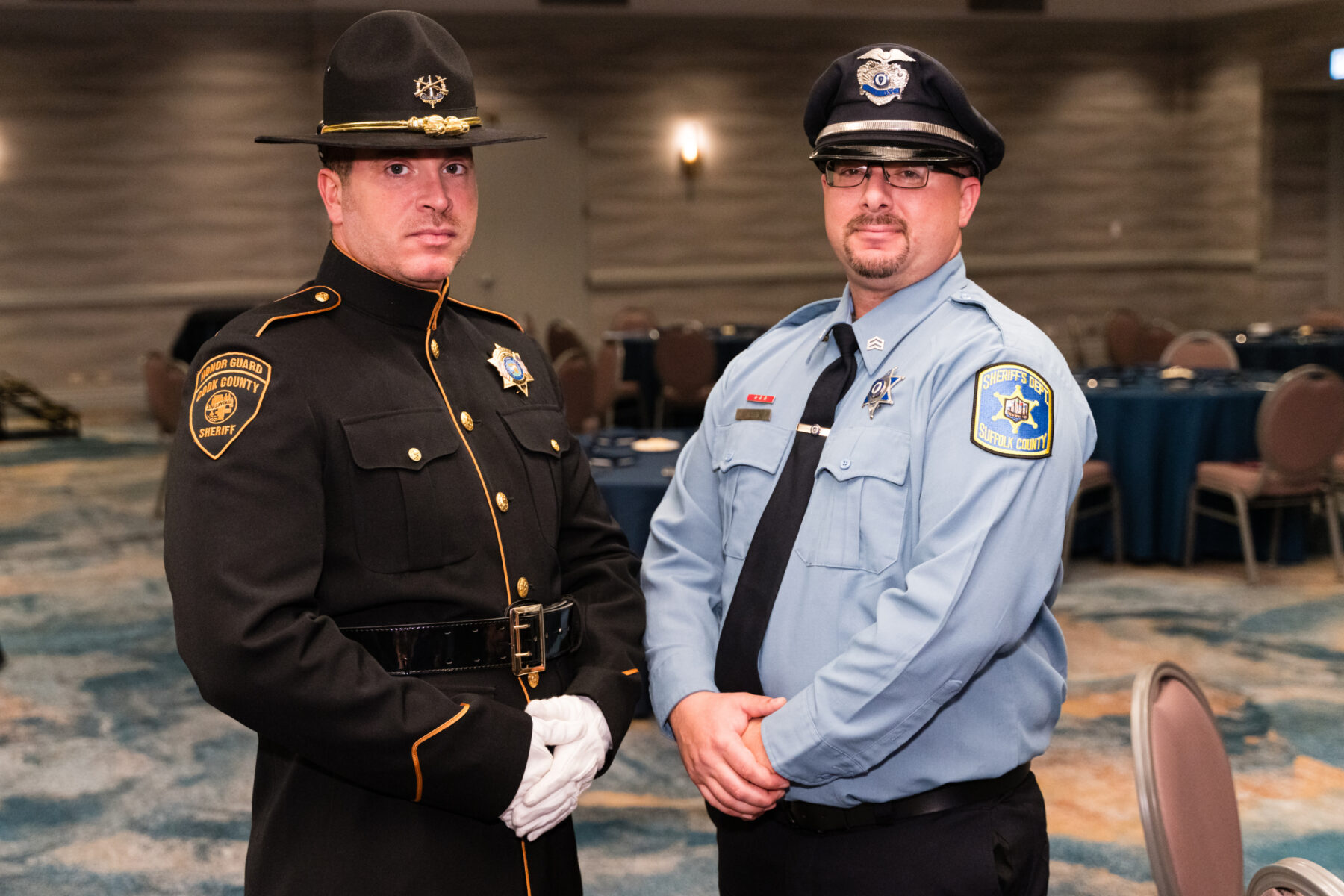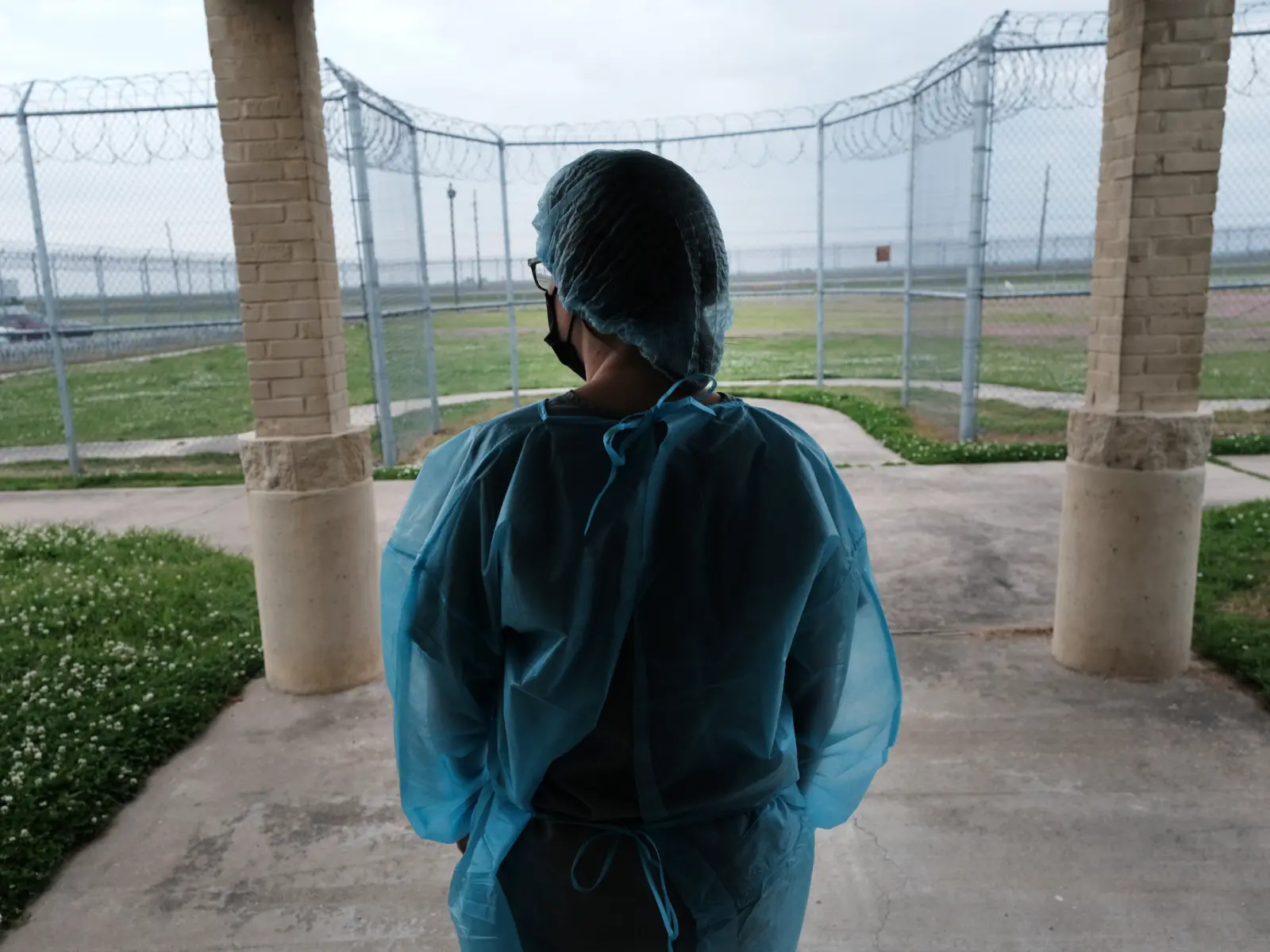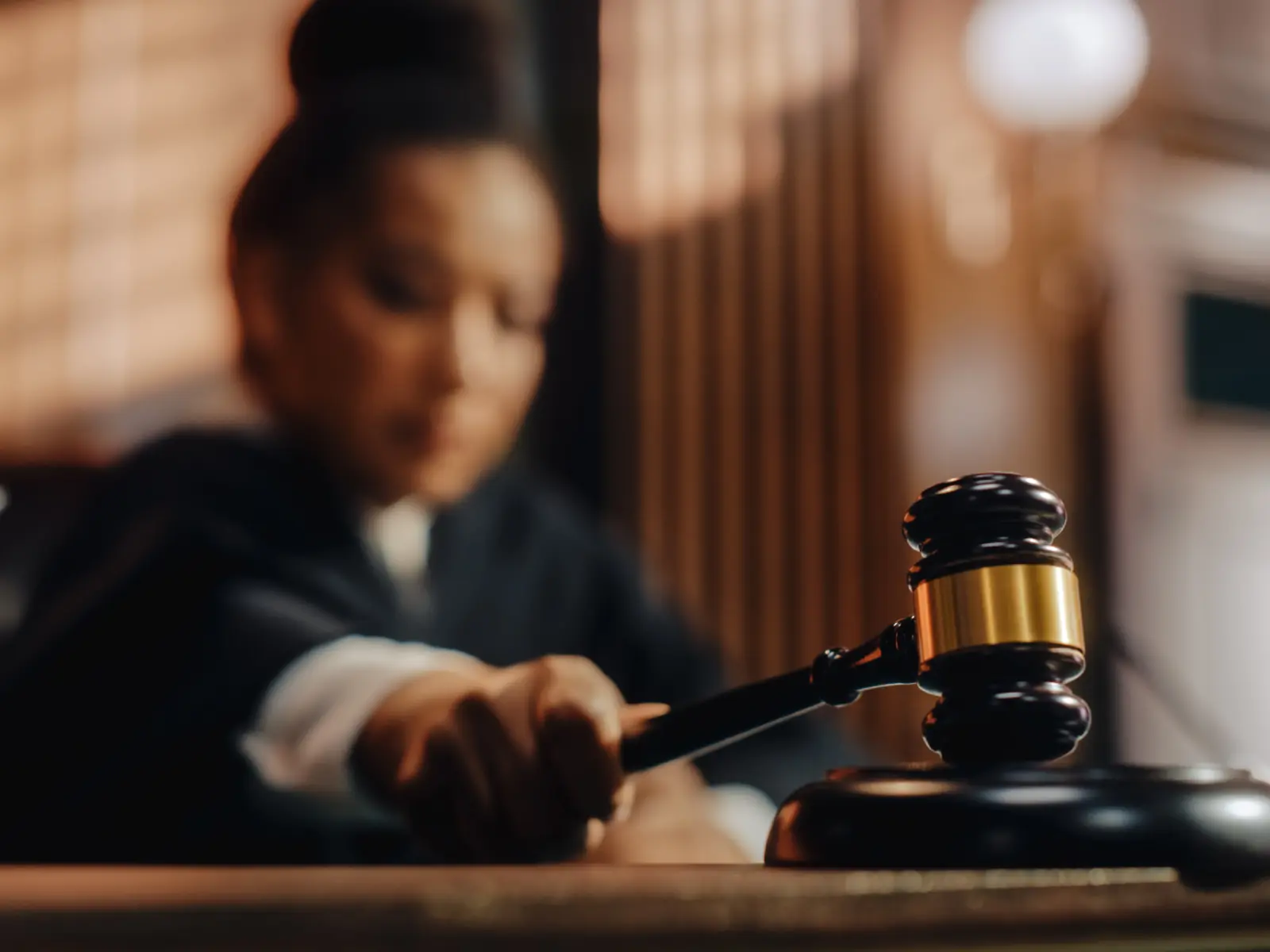During a recent bipartisan Senate hearing on the corrections staffing crisis, Stephen Walker, national wellness director of One Voice United (OVU), was eager to share his experience as a youth corrections officer and labor leader in California who has been on the job since 1985.
The crisis, Walker told senators during his testimony, “is a national problem that impacts every aspect of the mission of corrections by asking staff to do more with less, often resulting in excessive work hours and multiple mandated shifts per week, leading to increased burnout, less job satisfaction, and an inability to perform everyday security and rehabilitative functions.” These problems, he explained, contribute to unfair and even dangerous conditions inside prisons.
The hearing, convened by Sens. Cory Booker and Tom Cotton, addressed the toll that understaffing has taken on both corrections officers and incarcerated people. For corrections staff, nationwide personnel shortages have led to poor security, long hours, slow response times, strained family relationships, and compromised health. Meanwhile, for people who are incarcerated, understaffing has meant cuts to vital programming that reduces recidivism, less visitation time with family, more hours on lockdown, and more danger and violence.
Walker says the senators expressed genuine concern. “I’m optimistic,” he says. “We walked in with the agenda of talking about the hurt, harm, and dysfunction that the system generates, and with a prayer that their humanity would say this is not how we should be engaging with people. We’re hopeful that they look at the impetus for this crisis, why so few people come to the corrections occupation, and why so many leave prematurely.”
What One Voice United tries to do is raise the profession to a place where it’s recognized and valued as an equal stakeholder by everyone.Andy Potter founder of One Voice United
The Senate hearing was a milestone in the efforts of OVU, an organization that represents corrections officers and staff. In 2016, Andy Potter, a former corrections officer and union leader in Michigan, founded OVU with the aim of uplifting the voices of frontline officers doing one of the toughest jobs in the country. Now, with support from Arnold Ventures (AV), the organization is leading the fight for change, focusing on everything from overhauling the corrections system to increasing safety and wellness, and from accommodating new attitudes toward shift work to partnering with organizations representing incarcerated people — all in the name of improving life and work inside prisons and jails.
“There has to be room to rethink not just the paramilitary structure of the profession but also what we’re asking of our staff and what we’re providing them, so that they can go home at the end of the day feeling like they were a part of something successful,” says Potter. “What One Voice United tries to do is raise the profession to a place where it’s recognized and valued as an equal stakeholder by everyone — administrators, politicians, and the public.”
This Work is Dangerous
OVU is facing down a stark set of challenges. Due to understaffing, overcrowding, and poor conditions, the corrections system is approaching a breaking point. This growing crisis profoundly affects the physical and mental health of officers, their families, administrators, and people who are incarcerated alike. Moreover, it negatively affects public safety.
Studies show that America’s nearly 450,000 corrections officers suffer from post-traumatic stress disorder, depression, suicide, heart disease, shortened lifespans, and other physical and psychological ailments at rates far above those of the general public.
“We all know going in that this work is dangerous,” Potter says. “But this is the first time I can remember in my entire career when the officers and other staff I talk to not only don’t feel safe but feel like there is a constant danger, like there is one-hundred percent hostility every day that they walk through those gates, they feel like nobody has their back. They feel that they’re expendable.”
number of corrections officers who suffer from physical and psychological ailments
OVU believes that conditions can be vastly better. But for many years, Potter says, policymakers, along with the general public, looked on corrections staff as the “villain” in the system, an obstacle to the solution and not as the professional consultants that can help shape the solutions. When OVU was founded in 2016, the organization could hardly get a meeting, Potter recalls. Today, however, something is beginning to shift. OVU is increasingly finding an open door to many elected officials, reform groups, and administrators. All of whom are rightly seeing corrections staff, and in some cases their unions, as legitimate partners in reimagining and transforming an embattled system.
“Who knows better the possible solutions than those who are directly affected?” Potter says.
OVU acknowledges that there have already been well meaning attempts at solutions, like lowering the entrance requirements for new recruits, offering signing bonuses, and shortening the academy time so new corrections staff can get in the doors quicker. But Potter sees these policies largely as short-term band-aids that will only exacerbate the problem and are partly responsible for the challenges currently being experienced. OVU favors a more holistic understanding of safety and healthier solutions, citing the necessity of 21st-century professional training, a move away from the enduring paramilitary structure of corrections departments, and an orientation toward team-building and wellness solutions that value the opinions of officers and other staff, not to mention fairer compensation and guaranteed health care.
“We need to take care of folks,” Potter says. “We need to show them that their sacrifice doesn’t go unrewarded, that there’s a light at the end of the tunnel.”
Addressing Staff Wellness
In addition to talking with policymakers, OVU is working nationally to survey and solicit the insights and perspectives of local, state, and federal corrections staff on issues related to conditions and wellness. Brian Dawe, the national director at OVU and a former Massachusetts corrections officer, says that his top priority is getting out and talking to staff who are experiencing these issues every day.
Two ways OVU does this is by conducting surveys and listening sessions. Recently, OVU held a listening session in California, asking staff about their top ten points of stress. The top three sources they identified were policies and procedures, the corrections administration, and fellow staff, with the incarcerated population coming in a distant fourth.
“Those surveys give us a good idea of what is really eating at these men and women, what’s driving them off the job,” Dawe says. “They’re telling us what the real problems are.”
Those surveys give us a good idea of what is really eating at these men and women, what’s driving them off the job, they’re telling us what the real problems are.Brian Dawe national director of One Voice United
On the wellness front, OVU is running seven pilot projects across the country. In Boston, the department of corrections is working on family awareness by bringing family members into facilities to help them understand their loved ones’ working conditions. Connecticut and Illinois are both taking measures to enhance officers’ psychological self-defense, build emotional intelligence, and help them control their emotions.
To address the problem of retaining new hires, many states — including Connecticut, Colorado, Massachusetts, and New York — are conducting “next gen” sessions, during which they take young staff, with 5 years or less on the job out to chat, ask why they took the job, and find out what would make them stay or what is making them consider leaving.
“Very few people understand what goes on behind the walls — it’s only the sensational incidents that get reported out,” Dawe says. “So, I think our work is opening up a lot of eyes and creating a new dialogue that is very much needed.”
Intertwined Fates
In February, OVU partnered with FAMM, an organization that represents incarcerated people and their families, to launch the Safer Prisons, Safer Communities campaign. That campaign will be a joint effort — by people whose “fates are intertwined,” as a recent statement asserts — to improve the health and wellness of prison staff, enhance rehabilitation opportunities for incarcerated people, increase safety for everyone including communities, heighten transparency and accountability to the public, and explore ways to safely reduce the demand on prison systems.
In addition to working with groups like FAMM, OVU continues to develop partnerships and networks within the larger corrections staffing field. In April, OVU held its annual Elevating Our Profession conference that brought together roughly 130 corrections professionals from 26 states and 3 countries to discuss OVU initiatives and offer feedback on what’s working and what’s not.
“We have found that when we actually sit down and talk, there are some common solutions that we can work together on,” Dawe says. “That, to me, is extremely exciting. That hasn’t happened before, and today new ideas and initiatives are constantly coming up.”




















